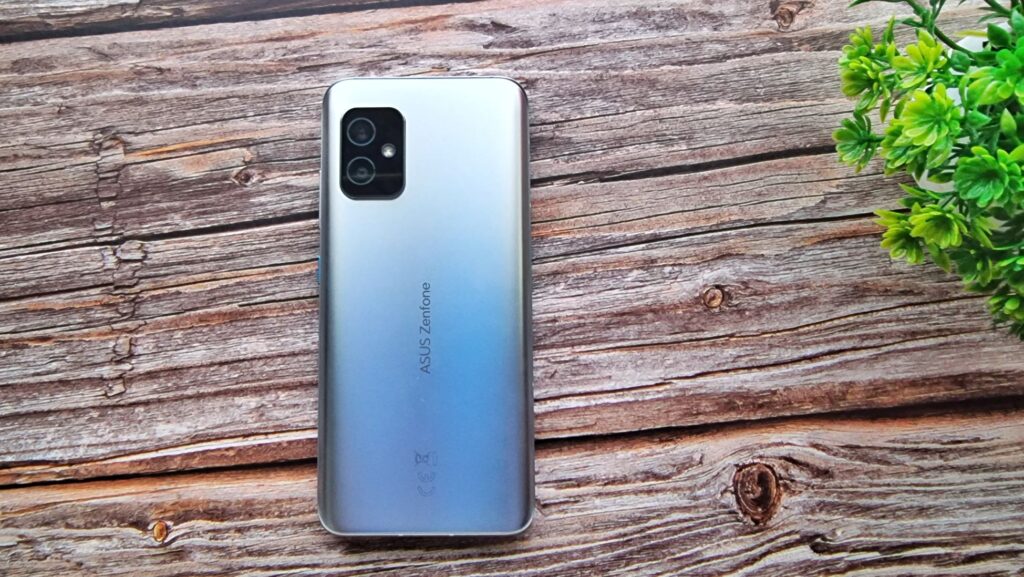
ASUS Zenfone 8 Unboxing and First Impressions – Why this pocket powerhouse is one of the most exciting phones of 2021
The ASUS Zenfone 8 is coming to Malaysia in the near future on 28th May 2021 and Hitech Century got first crack at just what their latest phone has to offer. Find out more in our ASUS Zenfone 8 Unboxing where we see what they have shoehorned into the packaging and our first impressions of what may be their most exciting phone yet.
Where most manufacturers are pursuing the idea of shoving in as large a display as possible into their flagship phones, effectively making them phablet sized behemoths, ASUS has gone entirely the other way with the Zenfone 8 and are bringing back a form factor once thought lost to antiquity – a flagship phone that’s actually pocketable.
Compared to the recently released ASUS ROG Phone 5 gaming phone, the mainstream Zenfone 8 is vastly smaller and slimmer with dimensions closer to an iPhone 12. While the general perceived compromise to a smaller form factor in a phone being a trade-off in performance, the Zenfone 8 is a full-fledged flagship phone in every respect from its specifications down to its design shoehorned into a small form factor.
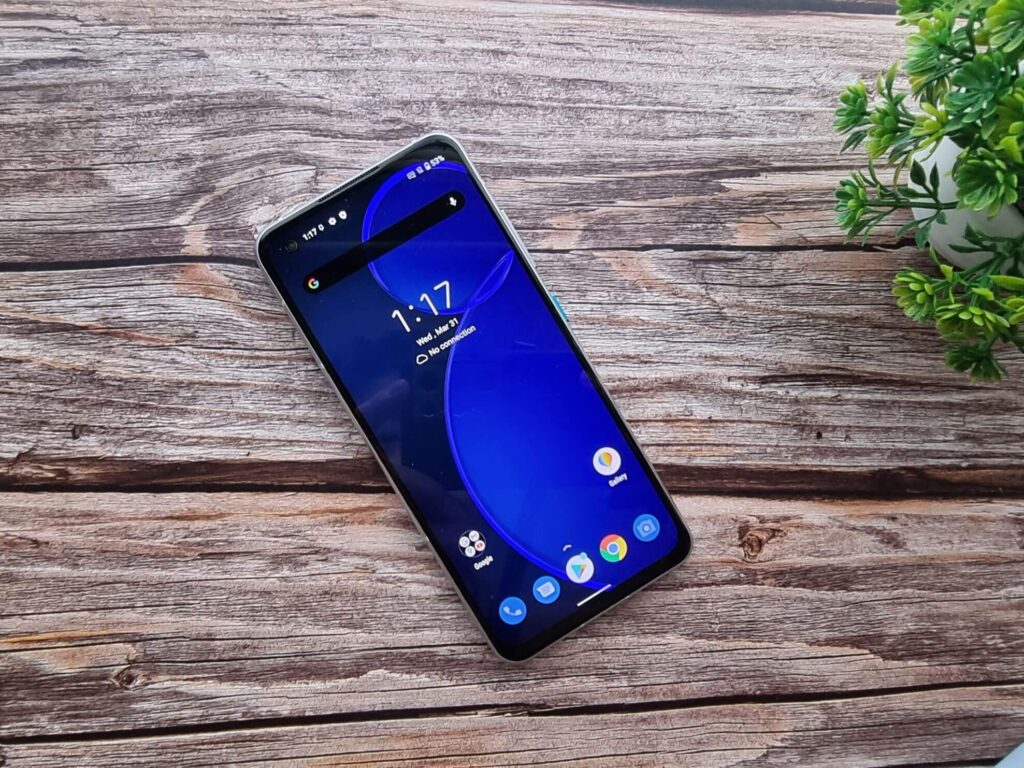
ASUS Zenfone 8 Unboxing – What’s in the Box?
Table of Contents
The Zenfone 8 serves up a fairly impressive unboxing experience befitting a top tier phone . After you rip off the shrink wrap, you then slide the box open to reveal the following items stacked in layers neatly divided by cardboard partitions:
1 x Zenfone 8
1 x SIM Eject PIN
1 x Hard plastic case
1 x 30W charger with UK-style 3-pin plug
1 x USB-C cable
1 x Quick Start manual and warranty guide
As far as extras go, the Zenfone 8 is considered fairly generous compared to the competition. You have the means to fast charge the phone straight out of the box without having to fork out extra cash and get a case to go with it too without having to hunt for it online which is always a challenge with more boutique phone brands.
One thing that we’ve taken for granted are pre-applied screen protectors and unfortunately, the Zenfone 8 does not have one slapped on so some care needs to be taken to avoid it getting nicked.
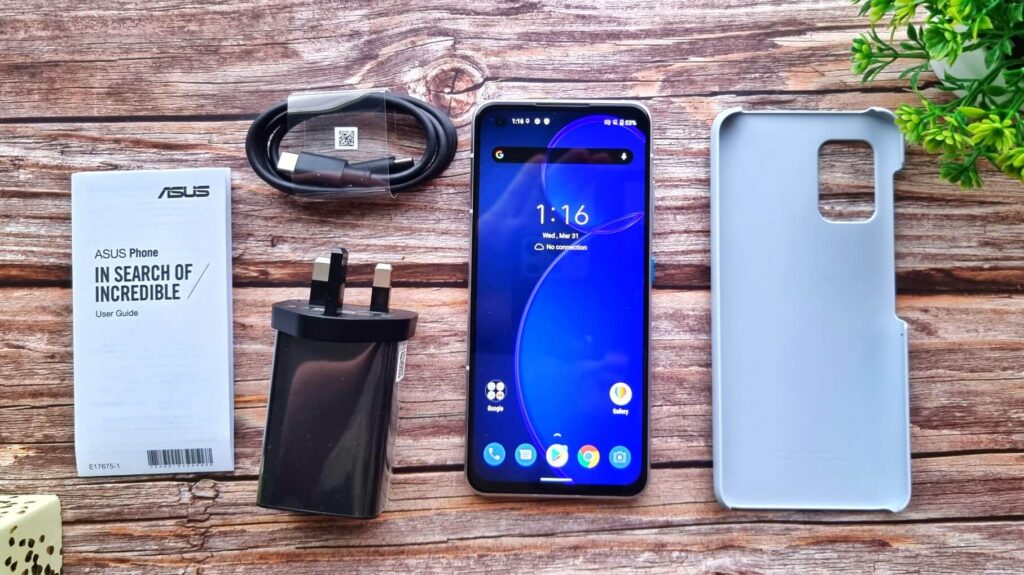
To be fair, you’ll need to be incredibly butter fingered to prang it as the display is sheathed in Corning Gorilla Glass Victus, currently the toughest type of tempered glass currently available. However, the backplate isn’t as robustly armoured as it uses Gorilla Glass 3 which is fortunately very scratch resistant.
You can check out the ASUS Zenfone 8 Unboxing video that we did here:
ASUS Zenfone 8 Unboxing – Specifications
In terms of specifications, here’s what the ASUS Zenfone 8 has to offer and what our review unit packs. For Malaysia, the Zenfone 8 will come with 8GB RAM and 128GB of non-expandable storage.
| Display | 5.9″ Samsung AMOLED display 20:9 aspect ratio, 2400 x 1080 FHD+ 120 Hz refresh rate, 1 ms response time, 240 Hz touch sampling rate, 1100 nits peak brightness 112% DCI-P3 color gamut, Delta E<1 color accuracy, 1,000,000 : 1 contrast ratio, Corning® Gorilla® Glass Victus™ |
| Processor | 2.84 GHz Qualcomm® Snapdragon™ 888 5G Mobile Platform with 5 nm, 64-bit Octa-Core Processor w/ Qualcomm Adreno 660 GPU |
| Memory | 8GB LPDDR5 RAM/128GB UFS 3.1 storage |
| Connectivity | Integrated WiFi 6E (802.11a/b/g/n/ac/ax, 2×2 MIMO), tri-band 2.4 GHz / 5 GHz / 6 GHz WiFi, Bluetooth® 5.2 (EDR + A2DP), supports Qualcomm® aptX™, aptX™ HD, aptX™ Adaptive, Wi-Fi Direct, NFC |
| Camera | Main camera: Sony® flagship IMX686 64 MP image sensor – 1/1.7″ large sensor size, 0.8 µm pixel size Quad Bayer technology – 16 MP, 1.6 µm large effective pixel size F1.8 aperture 26.6 mm equivalent focal length in 35 mm film camera 6p lens 78.3° field of view2x1 On-chip-lens phase detection autofocus 4-axis, optical image stabilization LED flash Instant cameras switching Ultrawide camera: Sony® flagship IMX363 12 MP dual pixel image sensor – 1/2.55″ sensor size, 1.4 µm pixel size F2.2 aperture Dual PD autofocus Real-time distortion correction 14.3 mm equivalent focal length in 35 mm film camera Supports 4 cm Macro shot Front camera: Sony® flagship IMX663 12 MP dual pixel image sensor -1/2.93″sensor size, 1.22µm pixel size Dual PD autofocus 76.5 degree FOV Front camera modes: Photo, Portrait |
| SIM cards | Dual slots: 5G*+ 4G or 4G dual-SIM / dual-standby Slot 1: 2G/3G/4G/5G Nano SIM Card Slot 2: 2G/3G/4G/5G Nano SIM Card |
| OS | Android™ 11 with ZenUI 8 |
| Battery | 4000 mAh (typical) high-capacity battery, supports Quick Charge 4.0 and PD Charging |
| Size/Weight | 148 x 68.5 x 8.9 mm / 169g |
ASUS Zenfone 8 Unboxing – Design and Build
The moment you take it out of the box, the Zenfone 8 feels unnaturally light and small . At just 8.9mm thin and weighing 169g, it has a form factor somewhat akin to an iPhone 12.
Up front is the main draw to the phone, a 5.9-inch AMOLED display manufactured by Samsung, arguably the most respected manufacturer for AMOLED panels in the market.
The display itself has a taller 20:9 aspect ratio and befitting its origins, it has an impressive 112% DCI-P3 colour gamut and a Delta E<1 which ensures exceptional colour accuracy.

The Zenfone 8’s display also features a 120Hz refresh rate and a 1ms response time with a 240Hz touch sampling rate, features which lend it exceptional smoothness and responsiveness especially for gamers. As icing on the cake, it’s also sheathed in tough Corning Gorilla Glass Victus that protects it against nicks and scratches while retaining an under-display fingerprint reader in the lower third of the display. Alternatively you can opt for facial recognition for biometrics.
Up top perched in a corner of the display, the phone has a 12MP dual pixel selfie camera with dual phase detection autofocus which in itself is somewhat of a rarity for selfie cameras which are typically fixed focus setups. Closer scrutiny also reveals a pleasing sight near the upper edge, a grille for part of a matching set of stereo speakers with its twin emplaced in the base of the phone.
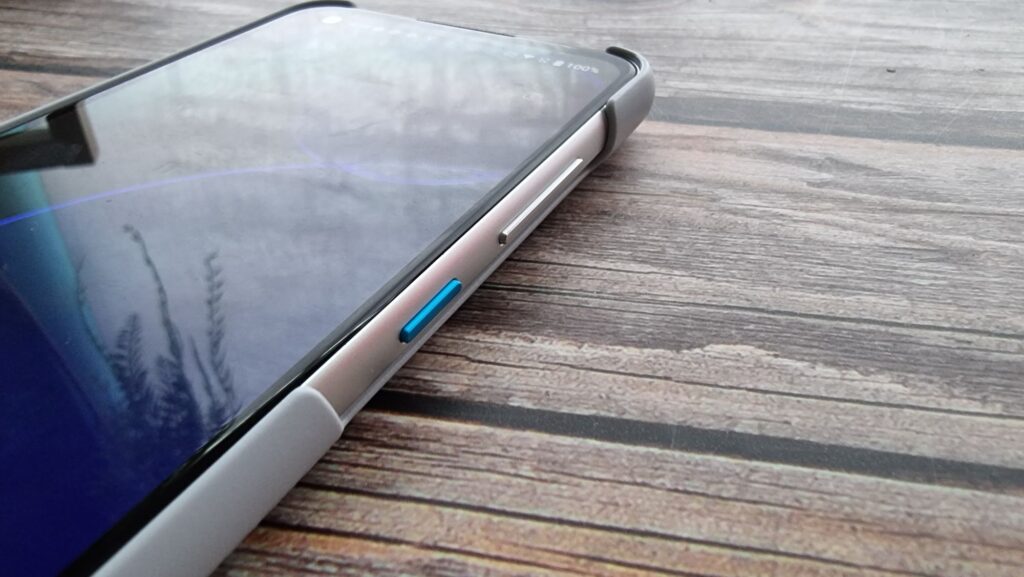
The left side of the phone is otherwise bare save for several antenna bands while the right side of the phone has a volume rocker with a striking power button done up in metallic blue.
Up top, the Zenfone 8 features additional antenna bands in the chassis and retains an amazingly sought after feature – a 3.5mm audio jack which lets you use traditional wired headphones. The base of the phone hosts a dual nano SIM card tray, a USB-C port and another grille for the phone’s stereo speaker setup.
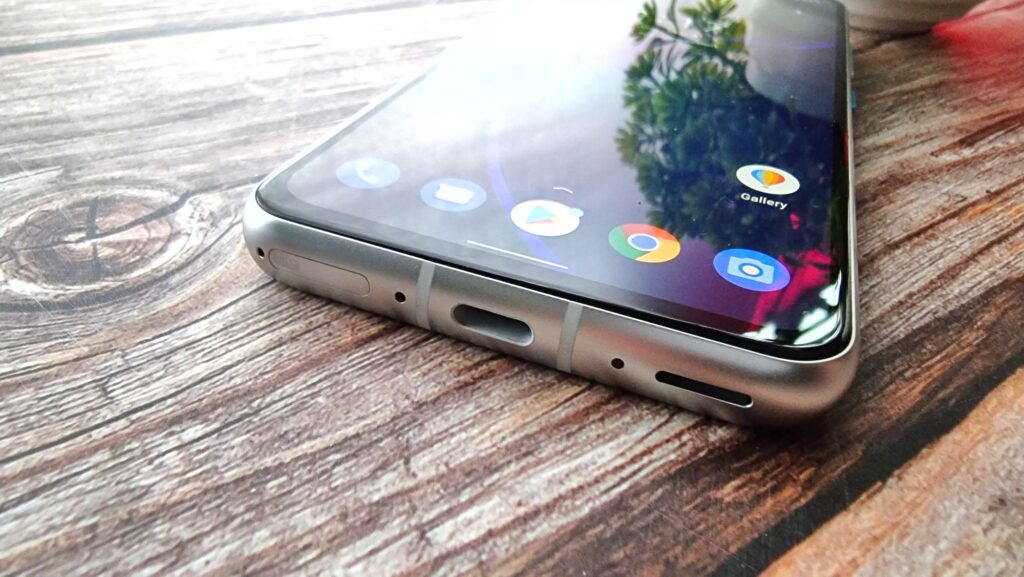
In terms of colour choices for the Zenfone 8, you have your choice of either Obsidian Black or Horizon Silver. In our Zenfone 8 unboxing experience, we discovered our sample was the latter.
In a gesture of restrained panache, the Horizon Silver finish features a reflective metal backplate done up in a semi-matte shade of silver and is otherwise plain save for the ASUS Zenfone logo emblazoned vertically on the phone and the rear dual camera housing on the back. Fortunately, the camera bump is fairly minimal and once you’ve added the bundled casing, it’s flush with the casing with an added extra lip to protect the glass when placed face down on a table.
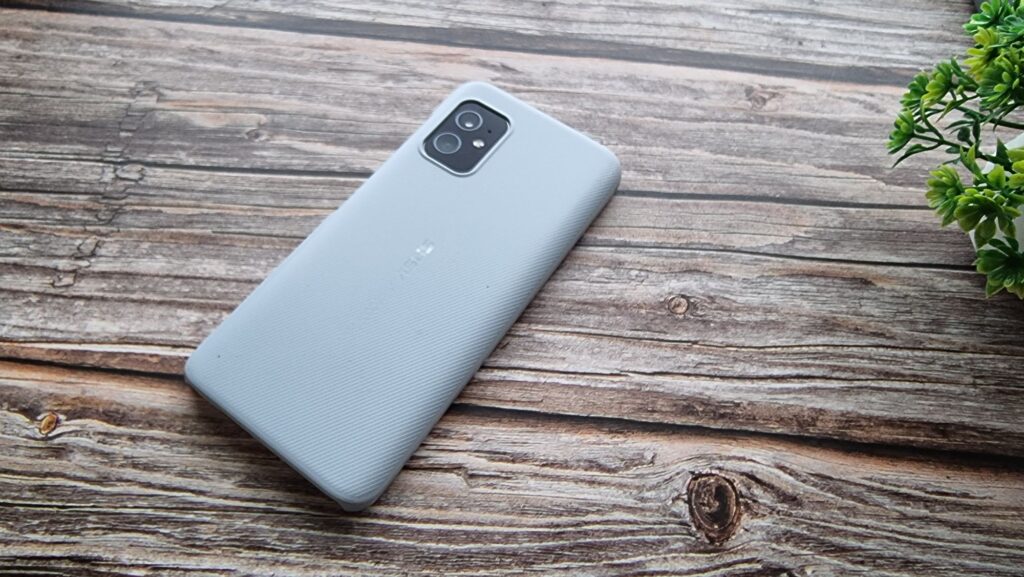
Perhaps the quaintest part of the Zenfone 8, the dual camera array seems somewhat minimalist compared to the plethora of triple and quad cameras festooning phones these days but both sensors are impressive snappers in their own right with Sony manufactured sensors.
You get a 64MP primary camera with OIS and 8K video capture capability and a secondary 12MP ultra wide angle camera with dual phase detection autofocus. Its sibling, the Zenfone 8 Flip has a nigh identical camera setup but adds in an 8MP telephoto camera with 3x optical zoom.
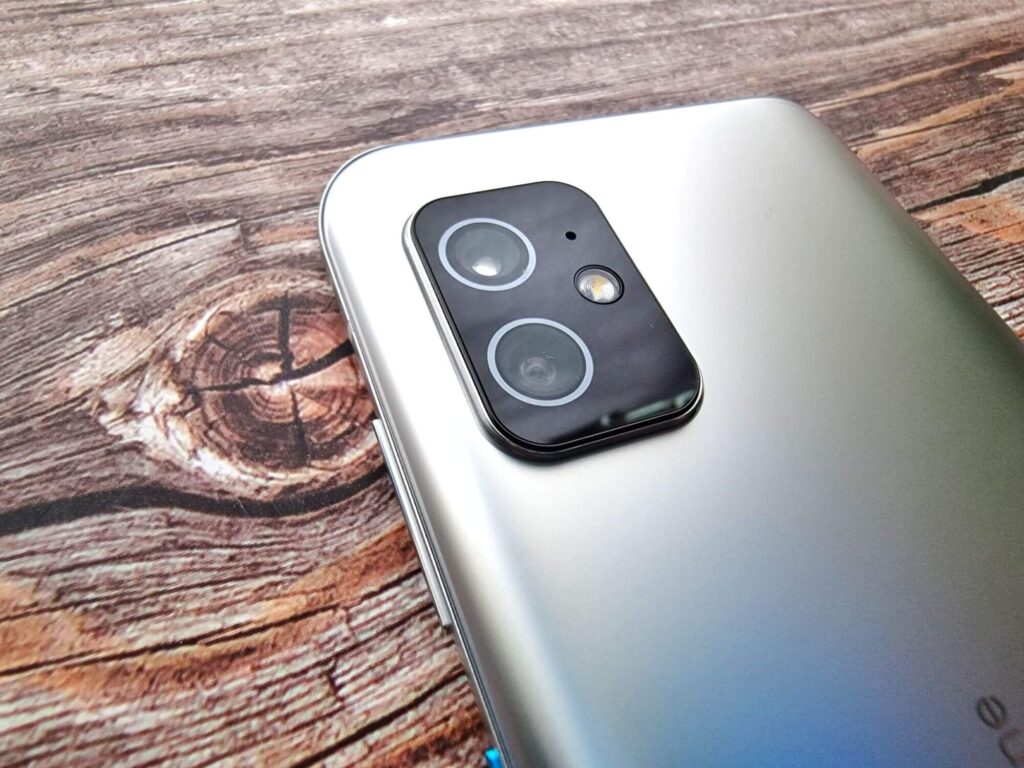
What makes the Zenfone 8 impressive is that they’ve not skimped on the important features key to a flagship smartphone as it retains an IP68 rating for water and dust resistance, meaning that it can survive in 1.5 meters of freshwater for up to 30 minutes.
They’ve even thrown in fast 30W wired charging too. Perhaps the only quibble here is the omission of wireless and reverse wireless charging but it’s not a deal breaker.
How does the Zenfone 8 feel?
During a preview briefing ahead of the global launch, the ASUS Zenfone 8 design team took great pains to share the process of how they conceived the form factor and design of the phone. Rather than attempting to go for as big a phone as possible in as small a form factor as possible, they’ve adopted a rather different approach of starting out with a compact form factor that’s comfortable enough to wield one-handed and then maximising as much performance as possible.
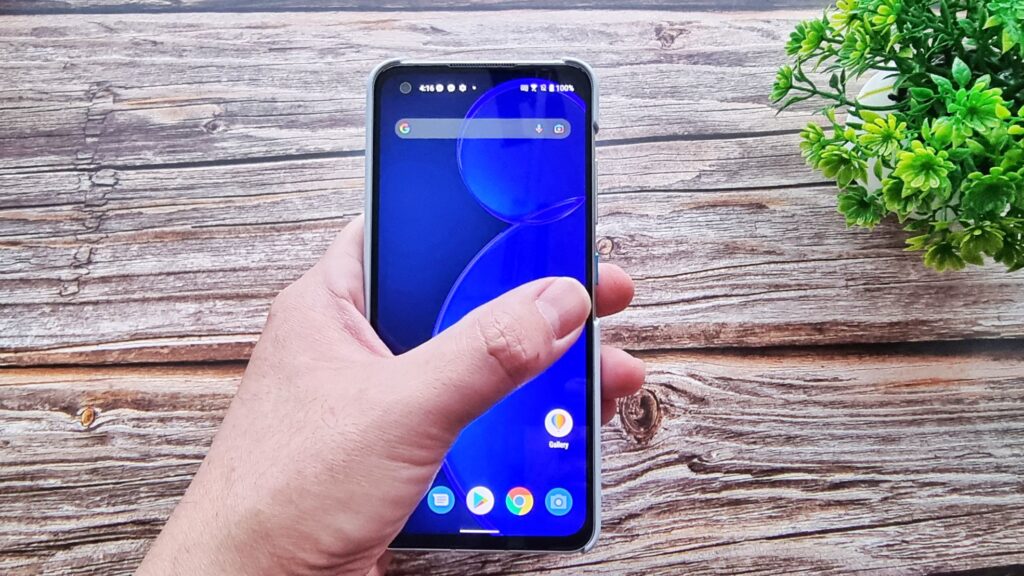
When I held the Zenfone 8, what immediately struck me was that I could reach across all the way to the other end of the AMOLED screen without requiring me to change my grip or having to stretch my thumb all the way to a potential OSHA violation. It’s also just tall enough at 5.9-inches on account of the tiny bezels that it’s still conceivable to reach the top of the pull down menu with a slight repositioning of the grip.
This lends the Zenfone 8 excellent ergonomics for one-handed use. In landscape mode, the compact nature of the phone does make it feel a bit cramped when you’re wielding it two-handed for gaming in Player Unknown Battleground and Call of Duty Mobile as your thumbs take up a third of the screen. That is where the likes of the ROG Phone 5 come into the picture.
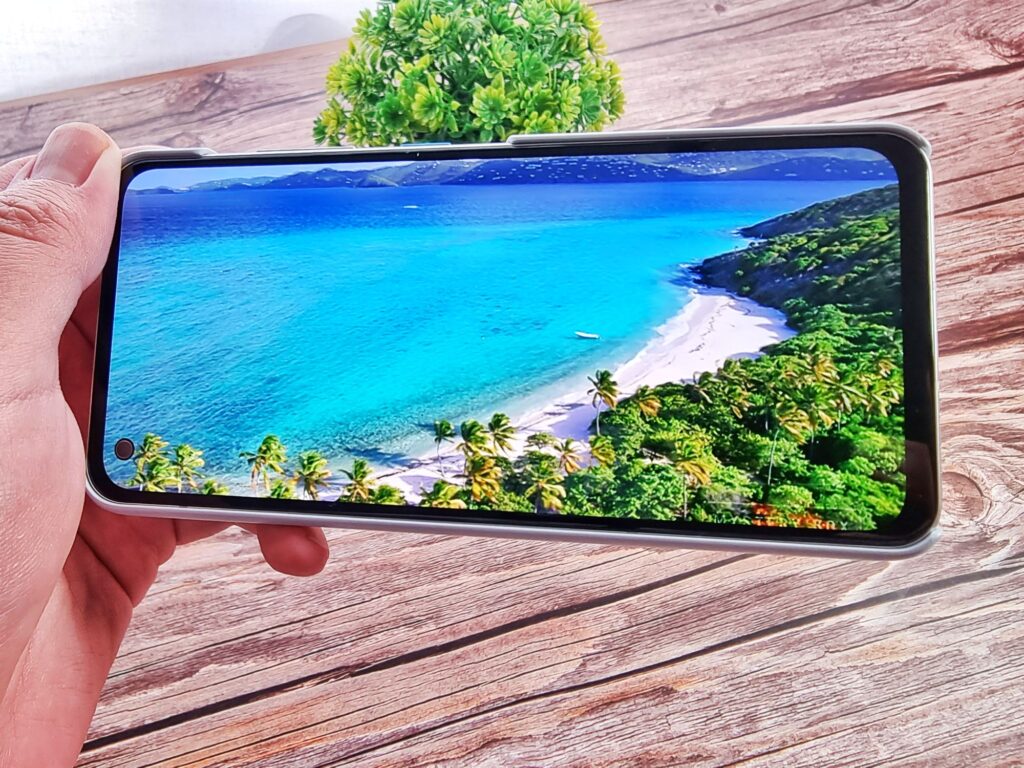
Without the casing, the Zenfone 8 offers surprisingly good tactility and an even heft with the semi-matte finish offering a bit of grip. Adding on the textured casing completes it, giving it an even more comfortable grip and feel that makes it easy to pocket and wield.
Our Zenfone 8 unboxing sample felt fast and zippy straight out of the box as ASUS provides an almost minimalist adaptation of stock Android 11 with their Zen UI 8 user interface. Games felt fast and web browsing as well as movie watching made for a delightful experience. Stay tuned for our full review soon! For more details stay tuned to ASUS Malaysia’s official page.
